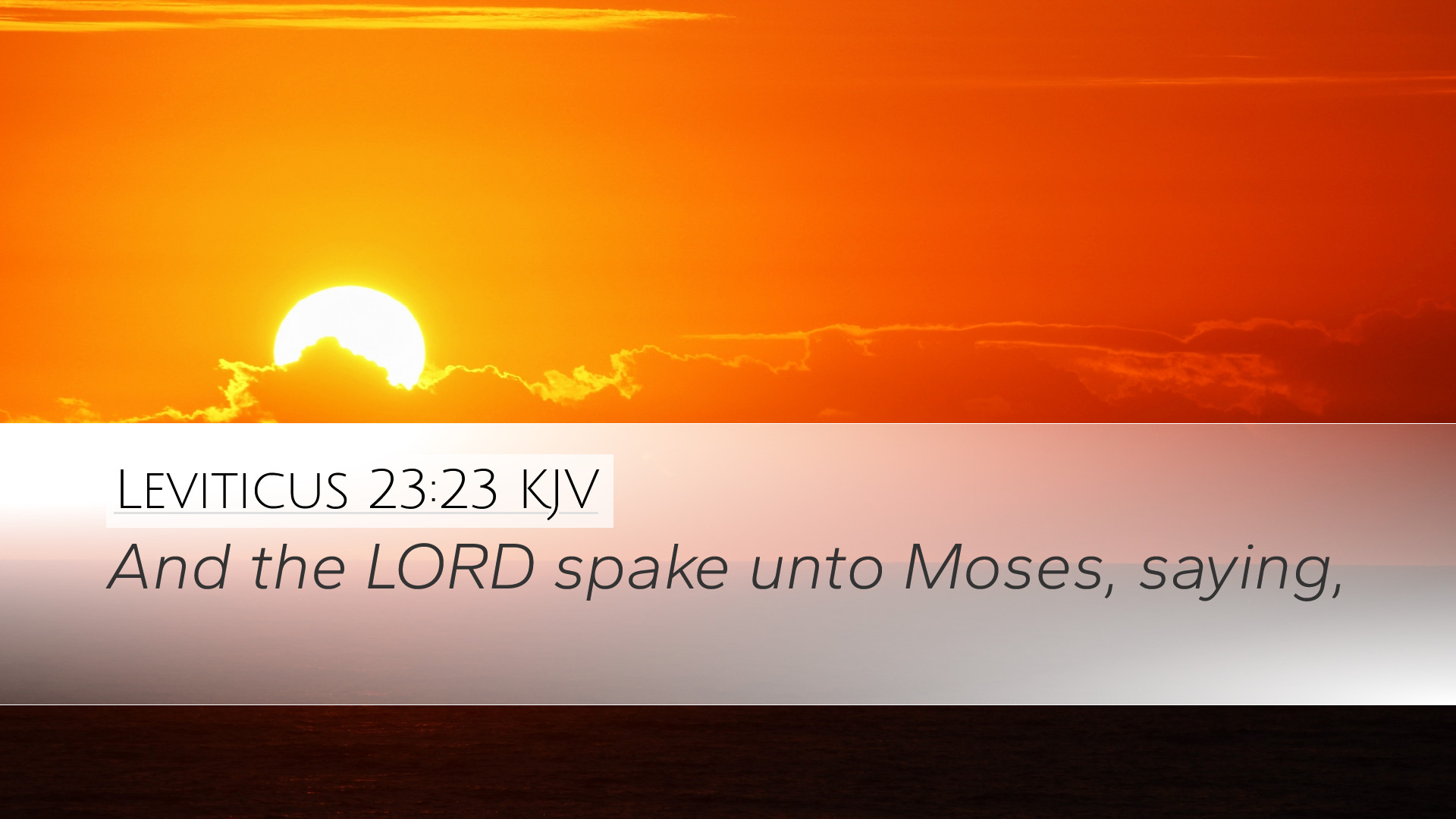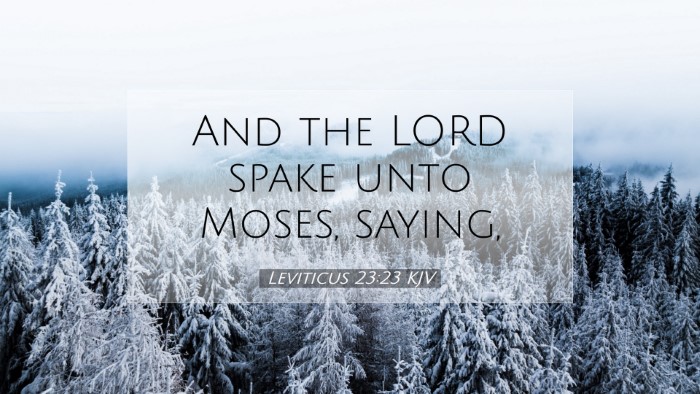Commentary on Leviticus 23:23
Bible Verse: "And the Lord spake unto Moses, saying,
Introduction
This verse introduces the command concerning the Feast of Trumpets, marking a significant moment in the liturgical calendar of ancient Israel. The context of Leviticus 23 delineates various feasts and their relevance to the covenant community, emphasizing the need for holy observance and communal worship.
Historical Context
The book of Leviticus serves as a manual for the priests and Levites, outlining laws and rituals that were essential for the Israelites' worship and approach to God. Leviticus 23:23 not only records Yahweh’s instructions to Moses but also signals a transition from agricultural cycles to theological reflection on divine redemption. The religious calendar reflects Israel’s identity as a people chosen by God, reliant on His sovereign grace.
Exegesis of Leviticus 23:23
Hebrew Text and Translation
The original Hebrew text contains the phrase that underscores both the urgency and divine authority of the command. The repetition of God's word to Moses indicates the serious nature of the instructions to follow.
Matthew Henry's Insights
Matthew Henry notes that this feast is a call to attention, using the trumpets as a means to gather the people, reminding them of their covenant relationship with God. The sound symbolizes both warning and celebration, encapsulating the duality of God’s judgment and mercy. Thus, believers today may reflect upon the call to gather in community worship and the importance of repentance.
Albert Barnes' Commentary
Albert Barnes elaborates that the Feast of Trumpets, or Yom Teruah, serves not only as a celebration of the new year but as an integral reminder of God's past deliverances and the anticipation of future hope. It is seen as a time for introspection, where the people are encouraged to reflect on their relationship with God. The trumpets served as a sacred sound that signified the depth of commitment required by the Israelites, a precursor to the spiritual renewal evident in later texts.
Adam Clarke's Analysis
Adam Clarke elucidates the theological implications of the command, emphasizing that the trumpet also heralded the Day of Atonement that followed ten days later. This indicates a period of reckoning and preparation where the community is called to humility and self-examination. Clarke ties this in with prophetic foreshadowing of Christ, who fulfills the ultimate atonement, thus giving urgent meaning to the observances mandated in the Old Testament.
Theological Significance
The indications of gathering and calling out reflect God’s continual invitation to His people. Theological themes of redemption, communal worship, and divine judgment resonate through this command. The use of trumpets in antiquity carried significant weight, evoking a sense of urgency and importance, reminding the faithful of their need for vigilance and preparation.
Applications for Today
- Community Gathering: Just as the Israelites were called together, churches today must prioritize communal worship and fellowship, encouraging believers to come together in unity.
- Self-Examination: The Feast of Trumpets calls for penitence, urging contemporary readers to engage in spiritual reflections and personal renewals.
- Celebration of Redemption: The significance of the trumpet blast serves as a reminder of the salvation offered through Jesus Christ, heralding the good news of the Gospel.
Conclusion
Leviticus 23:23 not only marks a point in the ancient Israelite calendar but transcends to offer rich insights into communal worship, self-examination, and the overarching narrative of redemption in Scripture. Pastors, theologians, and students can look to this verse and its accompanying commentary to draw lessons on faithfulness, community, and the richness of God’s covenant promises.


